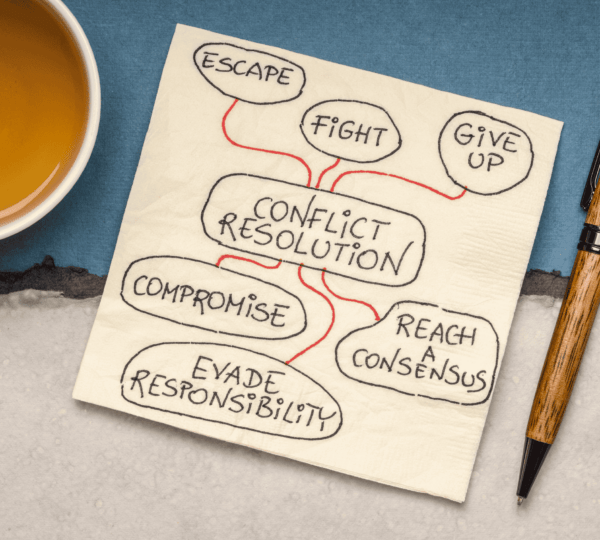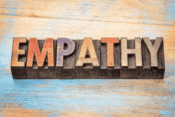
The Importance of Emotional Intelligence in Conflict Resolution
We’ve all had those days when everything goes wrong. To take my mind off it, I opened Twitter (X). I stumbled upon a tweet: “Pineapple on pizza should be illegal. Debate me.” Initially, I thought it was just a lighthearted comment, but the replies quickly escalated. One person declared, “Pineapple is a culinary triumph; you just don’t get it.” And the response? “If your taste buds are that advanced, why are you still single?”
I couldn’t help but laugh, but soon, the conversation devolved into a full-blown online battle, complete with insults, memes, and even stories about pizza betrayals. It was chaos.
This is a perfect example of how unresolved conflict can spiral out of control. What started as a simple opinion exploded into a war of words because no one took a moment to understand the other side. Emotions flared, and the original issue—the pineapple debate—was overshadowed by hurt feelings and comebacks.
While this may be amusing online, in real life, unresolved conflicts can create serious tension, especially in workplaces. This is where emotional intelligence (EI) plays a crucial role. By managing our emotions, empathizing with others, and finding common ground, we can prevent conflicts from escalating. After all, if people can coexist with pineapple pizza, surely we can resolve even the toughest disputes at work!
The Role of Emotional Intelligence in Conflict Resolution
Emotional intelligence matters when resolving conflicts because it helps us manage both our own emotions and those of others during disputes. When conflict arises—whether at work, among friends, or in families—emotions can cloud judgment and make finding a solution more difficult. However, EI provides tools to not only navigate these emotions but also use them to foster understanding.
Here are the key components of emotional intelligence and their role in conflict resolution:
- Self-awareness: Recognizing and understanding your emotions, including identifying triggers that lead to feelings like anger or frustration.
- Self-regulation: Managing emotions healthily through techniques like deep breathing, meditation, or journaling, allowing you to resist impulsive behavior.
- Social skills: Building and maintaining positive relationships through effective communication, active listening, and empathy, which help resolve conflicts cooperatively.
- Empathy: Understanding and sharing the feelings of others by seeing a situation from their perspective, responding with compassion.
The Link Between Emotional Intelligence and Conflict Resolution
When we have high EI, we handle conflicts more constructively. Here’s how:
- Improved Communication: EI helps communicate feelings clearly without aggression, using “I” statements instead of blame, and actively listening to others’ concerns.
- Enhanced Empathy: Empathy fosters compassion and better communication by understanding the emotions behind someone else’s actions.
- Effective Problem-Solving: High EI promotes a calm and rational approach to identifying the root cause of conflicts and developing creative, collaborative solutions.
- Reduced Stress and Anxiety: Managing emotions reduces stress, which leads to more positive and productive interactions.
Practical Tips for Using EI in Conflict Resolution
- Pause and Reflect: Before responding, take a moment to reflect on your emotions. This helps you calm down and think clearly.
- Practice Active Listening: Listen to the other person without interrupting. Use verbal affirmations like “I see” to show you’re engaged.
- Validate Emotions: Acknowledge the other person’s feelings even if you don’t agree with their perspective. For example, “I understand that you’re feeling frustrated.”
- Use “I” Statements: Express your feelings without blaming others. For instance, “I feel hurt when you do that,” instead of “You always do this.”
- Find Common Ground: Look for shared values or goals to build a foundation for constructive dialogue.
- Compromise and Negotiate: Be flexible and willing to find solutions that work for everyone.
- Seek Outside Help: If conflicts are difficult to resolve, consider mediation or counseling from a neutral third party.
The Research: How Emotional Intelligence Helps in Conflict Resolution
Recent studies show that emotional intelligence is crucial in resolving conflicts. According to research published in Frontiers in Psychology, individuals with high EI handle interpersonal conflicts better by navigating their emotions and those of others, leading to more effective communication. Additionally, a study in the Journal of Business and Psychology found that people with high EI are more collaborative in conflict, seeking win-win solutions rather than resorting to aggressive or avoidant behaviors.
Practical Strategies to Improve Emotional Intelligence for Conflict Resolution
Improving emotional intelligence takes time and practice. Here are some strategies to enhance your EI:
- Practice Mindfulness: Reflect daily on your emotions to increase self-awareness and emotional regulation.
- Listen Actively: Understand not only the words but also the emotions behind them during a conflict.
- Stay Calm Under Pressure: Focus on staying calm, take deep breaths, and pause before responding to avoid knee-jerk reactions.
- Ask Open-Ended Questions: Encourage dialogue by asking questions like, “Can you share more about how you feel?”
Conclusion
In conclusion, emotional intelligence is a game-changer when it comes to conflict resolution. By practicing self-awareness, empathy, and effective communication, we can approach conflicts with a mindset that encourages understanding and collaboration. Whether in personal relationships or professional settings, EI provides the tools necessary to manage disputes in a healthy, productive way.
If you’ve struggled with conflict before, try incorporating these EI strategies into your interactions. With practice, you’ll see your ability to resolve conflicts improve, leading to stronger relationships and a more harmonious environment overall.
References:
Goleman, D. (1995). Emotional Intelligence: Why It Can Matter More Than IQ. Bantam Books.
Bradberry, T., & Greaves, J. (2009). Emotional Intelligence 2.0. TalentSmart.
Harvard Business Review. (2020). “How Emotional Intelligence Can Improve Conflict Management.” Retrieved from hbr.org.
Journal of Business and Psychology, (2022). “The Impact of Emotional Intelligence on Conflict Resolution in the Workplace.”
Frontiers in Psychology, (2021). “The Role of Emotional Intelligence in Reducing Interpersonal Conflict and Enhancing Job Satisfaction.













